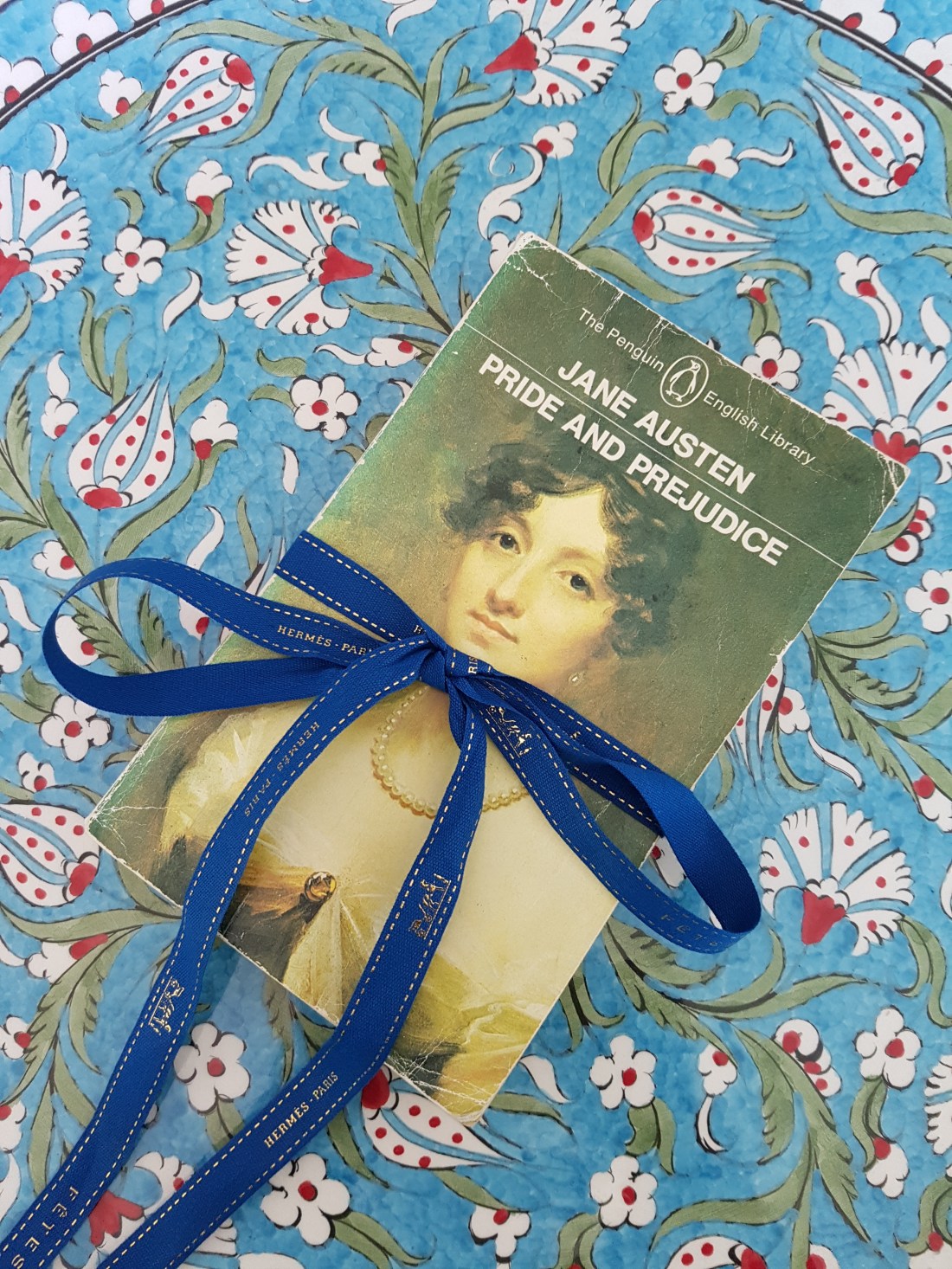My 1977 edition of Pride and Prejudice has accompanied me through seven house moves, survived six book culls, and been read at least five times. Why do I love Jane Austen so much?
1. I feel like I know her characters.
Although she died 200 years ago, Austen could be writing about people I know now. What woman doesn’t have a witty and opinionated friend like Elizabeth Bennet? Or a quiet, shy relative like Fanny Price? Who isn’t secretly annoyed by their bossy, interfering colleague, aka Emma Woodhouse? Or feel compassion for their reserved, yet stalwart friend who missed her chance at love through youthful insecurity, like Anne Elliot? Who doesn’t admire the friend who is long-suffering and responsible yet hiding her inner passion like Elinor Dashwood? Who isn’t sympathetic to that mate who, like the steadfast George Knightly, is friend-zoned by Emma Woodhouse? And what man can resist a sexy charismatic schemer like Mary Crawford when she sets out to charm? Jane tells it true.
2. I feel like she would understand my life.
My life hasn’t been beset by murder, war, alien invasion or apocalypse. The political climate around me may change but my life and the lives of those I love change only incrementally. My life is made up of small stories of love, loss and loyalty, of new beginnings and old longings, rather than the vast drama of global upheaval or international intrigue. That isn’t to say that other people’s lives aren’t profoundly tragic or bravely adventurous, just not mine. I feel like Jane could still make a story of my life, just as she could make a story of all our lives.
3. I feel like she would like me even when I am at my most horrid.
Her heroines are flawed yet we love them all the same. Elizabeth Bennet learns not to be swayed by first impressions. Emma Woodhouse realises she has been harsh and judgmental. Jane even finds a soft spot in her heart for Anne Elliot’s vain and selfish father, Sir Walter, and the wondrously silly Mrs Bennet. She sees the humanity in us all.
4. I love her wit and irony.
Her dialogue sparkles with wit. Her insights about her characters are as astute as they are funny. But beneath the clever dialogue and pithy commentary lies a world of irony. She revels in this world of drawing rooms, balls, picnics and social niceties and then subverts it with her subtle irony. For example, who can forget Elizabeth Elliot’s solution to the family debt crisis, ‘to cut off some unnecessary charities, and to refrain from new-furnishing the drawing room; to which expedients she afterwards added the happy thought of their taking no present down to Anne.’
5. She is a true romantic.
Her heroines always find love in the end. Sometimes it is staring them in the face and they don’t realise it. Sometimes the world conspires to keep them apart. Sometimes their own errors of judgment steer them away from the course of true love, but in the end they always find their happy ending. And don’t we all long for that?
